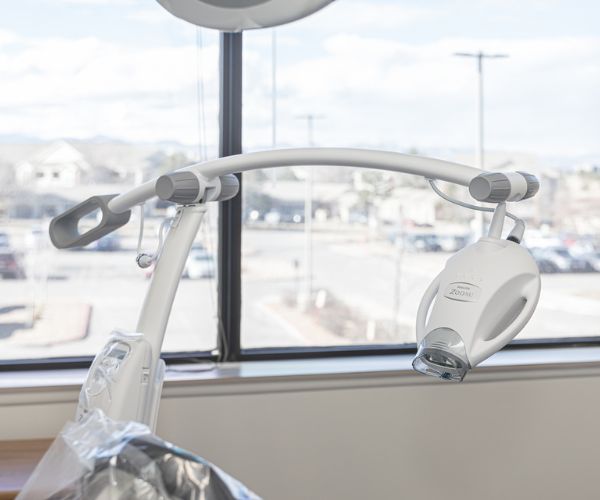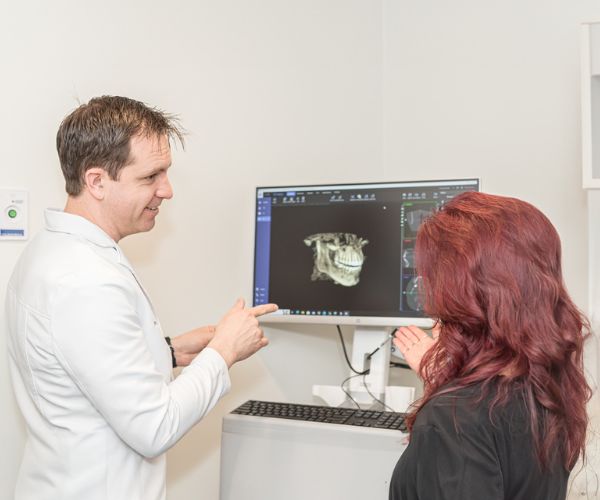What Is Sedation Dentistry and How Does It Work?

What Is Sedation Dentistry and How Does It Work in Highlands Ranch, CO
For many people, going to the dentist can be a source of anxiety. Whether it’s due to a past experience, fear of pain, or even the sounds and smells associated with dental offices, dental anxiety is more common than you might think. At Alpine Vista Dental, we want every patient to feel calm and confident when visiting us. That’s why we offer sedation dentistry—a safe and effective way to help patients relax during their dental procedures.
But what exactly is sedation dentistry, and how does it work? Let’s take a closer look at this helpful option and how it could benefit you.
Understanding Sedation Dentistry
Sedation dentistry involves the use of medication to help patients relax during dental procedures. It’s sometimes referred to as “sleep dentistry,” although that’s not entirely accurate. While some forms of sedation do make you drowsy, you’re usually still awake and responsive.
There are different levels of sedation, and the type used depends on the patient’s needs, the procedure being performed, and the level of anxiety present. At Alpine Vista Dental, our experienced team will work with you to determine the best option for your comfort and safety.
The Four Main Types of Sedation
Nitrous Oxide (Laughing Gas):
This is the lightest form of sedation. Nitrous oxide is inhaled through a small mask placed over your nose. Within minutes, you’ll feel calm and relaxed. The effects wear off quickly, and you can usually drive yourself home afterward.Oral Sedation:
Oral sedation involves taking a prescribed pill, usually an hour before your procedure. It produces a deeper level of relaxation than nitrous oxide, and while you’ll be awake, you may feel drowsy or even fall into a light sleep. You’ll need someone to drive you home afterward.IV Sedation:
This type of sedation is administered through a vein and allows the dentist to control the level of sedation throughout the procedure. It’s commonly used for more complex treatments or patients with severe dental anxiety. You’ll remain conscious but may not remember much about the visit.General Anesthesia:
Reserved for more invasive procedures or special cases, general anesthesia puts you completely to sleep. It’s typically performed in a hospital setting or specialized clinic.
Is Sedation Dentistry Safe?
Yes—when administered by trained professionals like our team at Alpine Vista Dental, sedation dentistry is extremely safe. We take your medical history, current medications, and overall health into account before recommending sedation. Our dentists and clinical staff are trained to monitor your vital signs and make sure you’re safe throughout the entire process.
Sedation is especially helpful for:
Patients with dental anxiety or phobia
People with a low pain threshold
Those undergoing multiple or lengthy procedures
Patients with sensitive teeth or a strong gag reflex
Children or individuals with special needs
What to Expect Before, During, and After
Before your appointment, we’ll review your health history and discuss your concerns. We’ll explain the different types of sedation available and help you choose what’s best based on your needs and comfort level.
During the procedure, you’ll feel at ease and free from anxiety. Depending on the level of sedation, you may be fully alert, somewhat drowsy, or in a light sleep. We’ll ensure your safety and comfort throughout.
After the appointment, recovery depends on the type of sedation used. Nitrous oxide wears off quickly, but with oral or IV sedation, you’ll need a bit more time to feel fully alert and will require a ride home. We’ll provide you with post-treatment care instructions to help ensure a smooth recovery.
Benefits of Sedation Dentistry
Reduces Anxiety: The biggest benefit is that it helps patients feel calm and relaxed during treatment.
Pain-Free Experience: Sedation often works alongside local anesthesia to ensure you don’t feel pain or discomfort.
More Efficient Appointments: Sedated patients can often tolerate longer or more complex treatments in a single visit.
Minimizes Gag Reflex and Movement: It helps keep you still and comfortable, which makes it easier for the dentist to perform precise work.
Improves Dental Health: When fear isn’t a barrier, patients are more likely to schedule and follow through with appointments, leading to better oral health over time.
Sedation Dentistry at Alpine Vista Dental
As the best dentist in Highlands Ranch, CO, we understand how overwhelming dental visits can be. Our goal is to create a calm, welcoming environment for every patient. With sedation dentistry, we make it possible for even the most nervous individuals to receive the care they need without fear or stress.
Our team is here to answer your questions and walk you through the process step by step. Whether you’re coming in for a routine cleaning or a more complex procedure, we’ll help ensure your visit is as comfortable as possible.
Contact Us
Sedation dentistry has transformed the way patients experience dental care. If anxiety or fear has kept you from taking care of your teeth, Alpine Vista Dental offers a safe, compassionate solution. Let us help you regain confidence in your smile—without the stress.
Ready to schedule your visit? Contact Alpine Vista Dental today and ask us about our sedation options. Your comfort is our priority!



